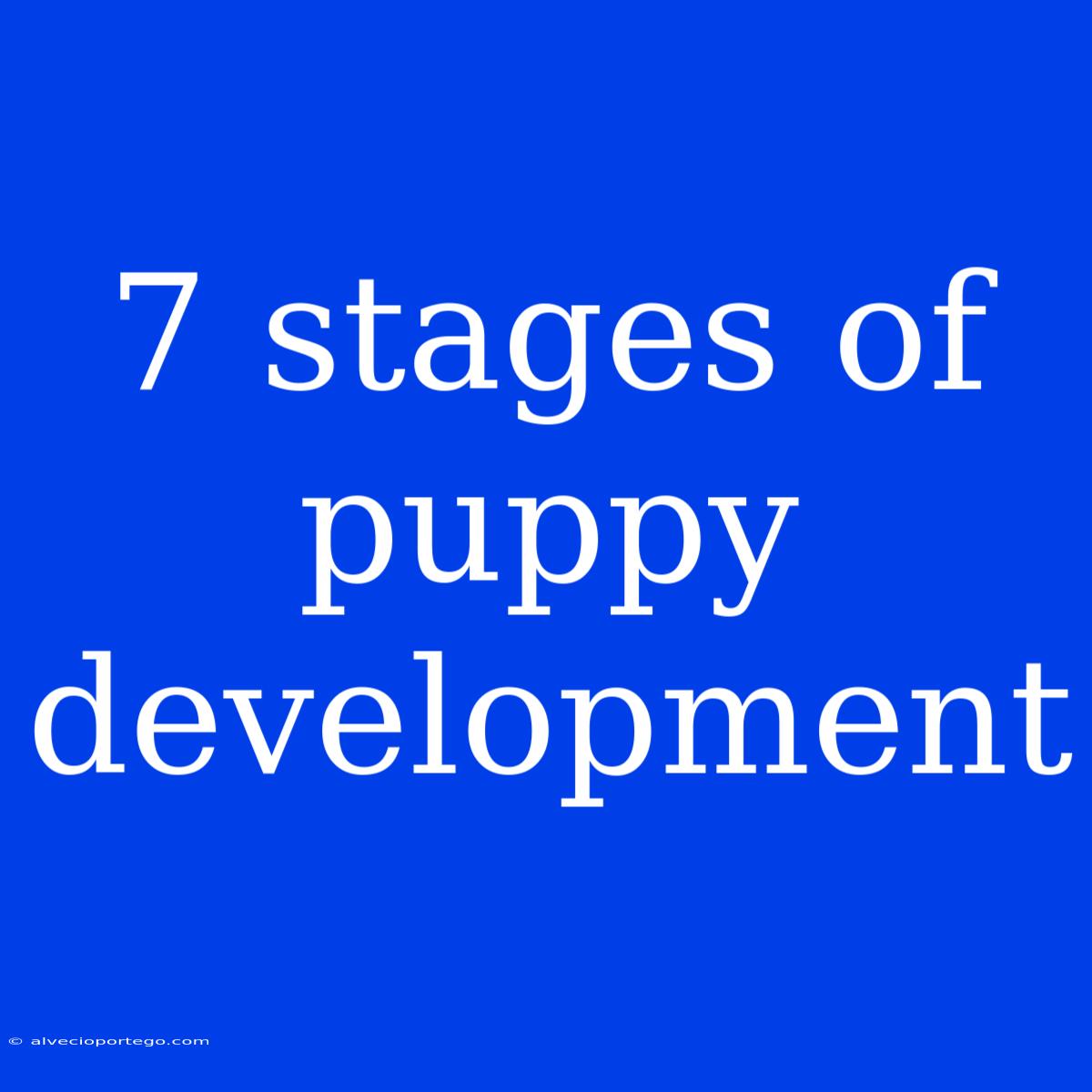The 7 Stages of Puppy Development: A Guide to Raising a Well-Adjusted Canine Companion
From the moment they open their eyes to the day they reach adulthood, puppies go through a fascinating journey of development. Understanding these stages can help you provide the best care and training for your furry friend.
1. Neonatal Stage (0-2 weeks)
- Key Characteristics: Blind and deaf, relying solely on sense of smell and touch.
- Important Needs: Warmth, nourishment (through mother's milk), and constant care from the mother.
- Your Role: Ensure the mother dog has a clean and comfortable space, and provide supplemental feeding if needed.
2. Transitional Stage (2-3 weeks)
- Key Characteristics: Eyes and ears start to open, becoming aware of their surroundings.
- Important Needs: Socialization with littermates, gentle handling, and introduction to various sounds and textures.
- Your Role: Begin gentle handling and socialization, allowing the puppy to explore different surfaces and sounds.
3. Socialization Stage (3-12 weeks)
- Key Characteristics: Rapidly learning about the world, developing social skills and forming key attachments.
- Important Needs: Exposure to different people, dogs, and environments, positive reinforcement training.
- Your Role: Enroll in puppy classes, take your puppy on outings, and introduce them to a variety of people and other dogs.
4. Juvenile Stage (12-18 weeks)
- Key Characteristics: More independent, engaging in play, and exhibiting exploratory behaviors.
- Important Needs: Continued socialization, consistent training, and a safe environment for exploration.
- Your Role: Reinforce training commands, begin potty training, and establish clear boundaries and expectations.
5. Adolescence Stage (6-18 months)
- Key Characteristics: Rapid growth, hormonal changes, testing boundaries, and potentially exhibiting challenging behaviors.
- Important Needs: Patience, consistency in training, and positive reinforcement.
- Your Role: Continue with training, address any behavioral issues with patience and understanding, and provide ample exercise and mental stimulation.
6. Mature Stage (18-24 months)
- Key Characteristics: Reaching full physical and emotional maturity, demonstrating calmer demeanor, and better understanding of routines and expectations.
- Important Needs: Regular exercise, mental stimulation, and ongoing training to maintain good behavior.
- Your Role: Continue to provide enrichment activities, ensure a balanced diet, and provide regular veterinary checkups.
7. Senior Stage (7 years and beyond)
- Key Characteristics: Slowing down, potential health concerns, and increased need for care.
- Important Needs: Quiet and comfortable environment, modified exercise routines, and regular veterinary checkups.
- Your Role: Provide a safe and loving environment, adjust exercise routines, and adapt to any changes in your dog's needs.
By understanding the 7 stages of puppy development, you can provide the optimal care and training for your canine companion, setting them up for a healthy, happy, and well-adjusted life. Remember, each puppy is an individual, and the pace of their development may vary. Be patient, consistent, and provide plenty of love and attention.

